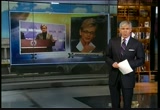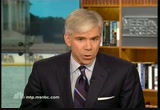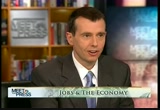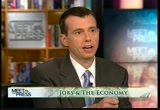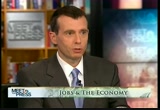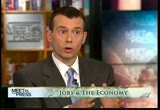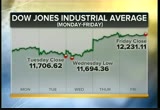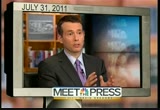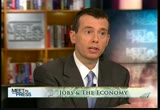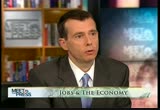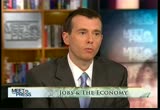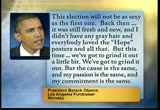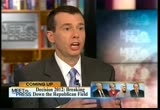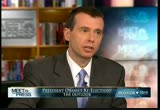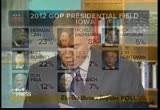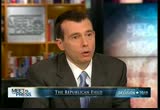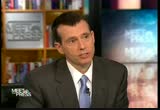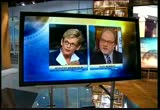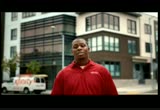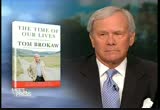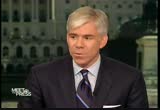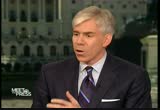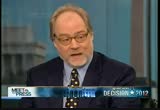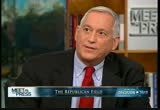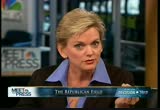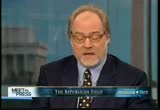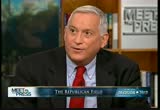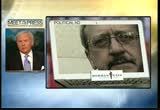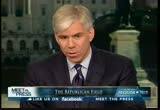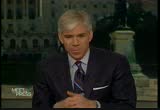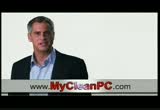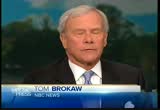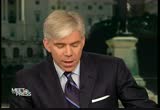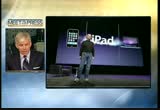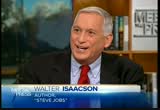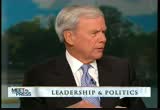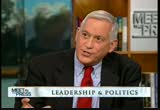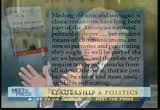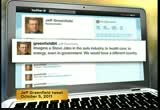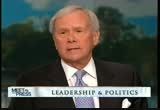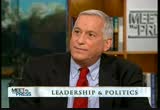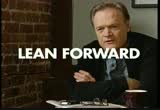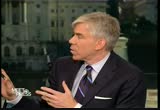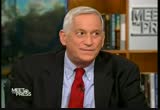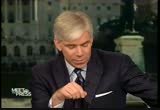tv Meet the Press MSNBC October 31, 2011 1:00am-2:00am PDT
1:00 am
this sunday, the republican race for the nomination. must-see tv. herman cain's campaign ad is blowing smoke. while he's breathing fire. >> i didn't realize that that bull's-eye was on that. they came after me like i had talked about -- >> is he for real? or for the perrperry/romney showdown. president obama claims he isn't paying attention yet. >> have you been watching the gop debates? >> i'm going to wait until everybody's voted off the island. >> but the man who is paying attention will run the president's re-election campaign from the white house, and he
1:01 am
joins me one-on-one this morning. white house senior adviser david plouffe. then our political roundtable. on the leadership letdown in washington. it fuels the occupy wall street protests, and is a backdrop for decision 2012. why can't we find leaders like steve jobs here in washington? with us, author of the new highly anticipated steve jobs biography, walter isaacson. nbc news special correspondent and author of the new "the time of our lives," tom brokaw. former democratic governor of michigan, jennifer granholm. and republican strategist, as well as columnist for "time" magazine, mike murphy. good morning. the first snowstorm of the winter makes an early fall landing, blanketing the east coast from maryland to new england, leaving more than 2 million homes without power. this is how it's going to look a
1:02 am
couple of months from now in iowa when the caucuses are under way. and this morning we have a clear snapshot of how the republican field now stands in the new des moines register poll, herman cain and mitt romney are on top. back in washington, the president focused on his own re-election, and the need to jump-start the economy, has a new strategy. >> we can't wait for congress to do its job. so where they won't act, i will. >> and he did. with four executive actions to make some economic fixes in housing, student loans, job training, and business. here with us to go inside the president's re-election playbook, his 2008 campaign manager and now senior white house adviser david plouffe. good to have you back. >> thanks for having me, david. >> so is this the new strategy, in washington we can't get along, the president's going to essentially govern via fiat and do things on his own? >> well, as you know, david, the president put forth the american jobs act, which is something that would create up to 2 million jobs in the short-term. really give a jump-start to our economy.
1:03 am
and right now we haven't been able to get the largely republicans in congress to cooperate. so we're going to continue to push for things like kiting taxes for the middle class, putting construction workers back to work. but in the meantime, the president's going to do everything he can, whether it's on housing, student loans, we're going to keep this up, so at the same time we're going to try and get congress to act on behalf of the middle class and help the american economy. we're going to do everything we can, as the president said, the american people can't afford to wait, and he's not going to wait. >> is the jobs bill dead, effectively? >> absolutely not. we're going to have a vote this week in the senate on putting construction workers back to work, rebuilding america. i find it impossible to believe by the end of the year that republicans in congress aren't going to report back to their constituents, they did something to help the economy. cut taxes for the middle class, for small businesses, help rebuild america. so we're going to keep the pressure on. because, you know, it's not like we're in normal times here. the economy is still, for many people, still in crisis. >> but you talk about republicans. in fact, the president's effectively campaigning against the do-nothing congress of republicans, but are democrats a problem, too? bill daly, the chief of staff, told politico this in a column with roger simon on friday, on
1:04 am
the domestic side, daley said both democrats and republicans have made it very difficult for the president to be anything like a chief executive. this has led to a kind of frustration. let's figure out what we can do without congress, and push the envelope on some of these things. do-nothing democrats? >> no. if you look at where we are right now, trying to pass the american jobs act, cutting taxes for the middle class, putting construction workers and teachers back to work, pretty much everybody in the democratic party and washington governors out there are standing with the president. so there's only one reason, one reason we won't make a huge impact on the economy. and it's because the republican party, and i make this point -- >> but he singles out of the democrats. who and why are they doing that? >> well, listen right now, the situation beer in right now, the republican party, almost in unison here in washington, and let me make a point, the republicans out in the country, mainstream commonsense republicans, whether it's having a wealthy pay a little bit more to help balance our budget, and create jobs, doing things on jobs, the republican party out in america supports the things the president's trying to do. so you see this distance between the sort of tea party
1:05 am
republicans here in washington, and the presidential candidates, and what americans -- >> but i'm asking about democrats. bill daley said democrats are creating frustration. they've made it impossible, nearly impossible for him to act as the chief executive. >> no, in this moment we're trying to pass the jobs act. sure there have been times when not everybody in the democratic party in washington has agreed with everything the president's done. right now you've got democrats in the senate, in the house, democratic governors and mayors standing in unison, not just with the president, but with the american people -- >> you hear the chief of staff saying democrats have part of the problem. you want to create some distance from that? >> i think bill will tell you in the moment we're in right now, trying to pass the american jobs act, trying to reduce the deficit in the right way, trying to do everything we can to help the middle class, it's the republican party here in washington that's the problem. >> you talk about not having a partner in republicans. the leader of republicans in the senate recently took the president on on that very issue. watch. >> i know he's desperately interested in trying to blame anybody else, but he's the president of the united states, he set the agenda, he got everything he wanted. and it didn't work.
1:06 am
>> stimulus, financial reform, health care reform, all big measures. they didn't work out in terms of economic impact the way the administration expected they would. here are the republicans saying we don't want to go along with any more. you call that obstruction. they call it principaled opposition. it's ironic. let's remember what senator mcconnell said. what he said his number one goal was not to put people back to work, help the middle class or grow the economy. it was to defeat president obama. so that's where they started this president's term. >> the president got the big things he wanted, did he not? >> well, we've got a lot more work to do. >> but he got the biggest things he wanted in his first term. >> well, we -- this economy is going to take a long time to recover. so we've got to keep making progress. and right now you've got a republican party in washington that almost seems to think the economy isn't in urgent shape, that doesn't need a jump-start. don't take my word for it. every independent economist who looked at the republican jobs plan in washington says it won't do anything to create jobs in the short-term. one macro economics said their agenda could lead to the destruction of millions of jobs
1:07 am
and economic upheaval. so the only plan right now in front of the american people, in front of congress, that would create jobs in the short-term is the president's. now we've done some work with the republicans, obviously. we massed some trade deals that's going to help us sell fords and chevys in south korea. passed patent reform. so we have been able to work together. and hopefully in the next 60 days we'll come together to cut taxes for the middle-class and do everything we can on the economy. we still have confidence on that. >> on the economy, look what the stock market did this week. friday's close was over 12,000, on track with the largest monthly ascendance, 2.5% economic growth in the last quarter. does the president see any green shoots here on the economy? >> well, listen, there's far too many people still out of work. the middle class still feels a lack of security, and that's been going on even predating the recession. so for a lot of people out in america, this is an urgent situation. there's no doubt that we've had, you know, many, many months of private sector job growth. markets obviously come back a little bit. but the question is, are you satisfied with that? the president surely is not. so we have to throw everything we can at the economy. and not just jobs is number one. but there's a bigger picture here. which is we have to reclaim some
1:08 am
of the middle-class security by restoring basic american values. that's what the president's trying to do. where hard work and responsibility is rewarded and where everyone is playing by the same set of rules, both wall street and main street. >> let me ask you about a few issues. the super committee on the debt. there's been more discussion of them. they're trying to reduce at least $1.2 trillion worth of debt or else there's going to be some forced spending cuts. you were on the program back in july. this is what you said about the super committee. >> so you want to have something that compels both parties to act. it's because i do think there's going to be a lot of pressure, rightly, on this committee to produce something that congress can vote on. >> a lot of pressure. does the president have a bottom line on what he wants to see the super committee produce? >> well, it's a little bit different situation than we faced during the debt ceiling because we have the default of the american and maybe global economies. we do have additional deficit reduction as a result of this in place. so what hopefully the super committee will do is act responsibly so we can both get a large-scale deficit reduction, but do it in a smart way. and obviously the clock is
1:09 am
ticking. the president laid out his plan. which is we've already signed into law over $2 trillion of spending cuts. we need to go a little bit more there. and obviously the big challenge, if we don't get this done, if the american people look to washington and say you didn't reduce the deficit, there's only one reason. it's because the republican party here in washington refuses to closing tax loopholes to ask anything more of millionaires and billionaires. that's really the stumblie inin block. it was back in the summer and it is now. we need to zero in on the question, and the republican party will say, you know what, we are willing because the democratic party is willing to do a lot more spending cuts, way are willing to ask the wealthiest to do a little bit more, through tax reform, then we could go a long way to solving this problem. >> let me ask you about this solyndra issue. this was the high-tech environmental company that went bust after getting energy department sponsored loans from the government to help develop them. congress has said they want documents, perhaps they'll subpoena documents. the administration is now investigating. did taxpayers get ripped off
1:10 am
here? >> well, let's step back for a minute. we have to win this race. you know. we -- if we don't win the clean energy race, in terms of technology, innovation and jobs, and see it to other countries we're not going to have the sense. it would be like us ceding the automotive race or the internet or computer race. >> in dire economic straits government should be playing venture capitalist? >> these are going to be in terms of solar, alternative values. now we take very seriously the fact that one of these loans did not work. that's why appointed herb allison who did a bunch of the investigative work in part to look at this. we have a public report in 60 days because protecting taxpayers is critically important. but we also have to keep our eye on the ball. which is if we're going to have the kind of jobs where people can make, $20, $22, $25 an hour on high tech manufacturing in this country we've got to make progress in the clean energy sector. >> were campaign contributors involved here in terms of their projects that ultimately forced the government's hand? >> absolutely not. these decisions about the loan program were made by career
1:11 am
officials in the department of energy on the merits. >> should government be playing venture capitalist to try to prop these industries up? >> well, we believe this loan program is very important. by the way, it was a program that was supported by president bush. so there's been support in both parties. many of the members of congress who offered criticism themselves were lobbying for funds for companies like this. so, i think the order -- listen you see what's happening in other countries. you know, huge investments. in this clean energy sector. we have to do everything we can. and by the way, it's not just through this loan program. one thing i don't think's gotten enough attention, humbly, is the president has doubled fuel efficiency standards. so by the middle of the next decade the average fleet in this country is going to get 56 miles per gallon. means a couple thing. over 2 million barrels of oil being used a day. that could be over half the oil we import from opec. and it could mean the automotive industry which the president saved is going to continue to innovate and lead the world and that couldn't be more important to lead the economy. >> will the white house cooperate with a congressional
1:12 am
subpoena on documents? >> well, i'm not going to comment on a subpoena that's not been issued. we've already produced 70,000 pages of documents. we are cooperating with the congressional committee. by the way, this is important to look into. we'd like to see as much passion in congress for creating jobs as we do with some of these issues. >> let's talk about politics. the president on the campaign trail, fund-raiser out west this week sounded pretty downcast. this is what he said. this election will not be as sexy as the first one. back then, i was -- it was still fresh and new, i didn't have any gray hair, and everybody loved the hope posters and all that. but this time, we've got to grind it out a little bit. we've got to grind it out. but the cause is the same, my passion is the same, and my commitment is the same. bill daley, chief of staff, talking about a brutal past three years. is the president in a funk? or is this meant to send a message to the base? >> he's not in a funk at all. i was on that trip with him, david, out west, and he was highly energized. as you spent a lot of time talking about the economicive actions we're going to take on the economy. we can't wait for congress to
1:13 am
act now. no, listen, the point is the president is saying, the country has been through a tough time, obviously. and we're going to have to go out there and we're going to have a tough election. one of the other things he said at these events he did on the political side was he promised change. and that's exactly what he delivered. change is ending the iraq war. change is making sure you can serve this country no matter who you love by ending "don't ask, don't tell." change is having health care reform. change is having economic and tax policies focused on the middle class. change is restoring our place in the world. taking the fight to al qaeda. eliminating osama bin laden and so many of the terrorists. so we've got a heck of a record to point to here. not just a string of accomplishments but the change, taking on tough issues, being willing to do tough things and the election is going to be about the future, too. we have, i think, a great case to make to our supporters about what they've done, why they need to get energized, and we're going to have a great debate about the kind of country we're going to have in the next decade. >> steve jobs, who a lot of people are talking about this week with the new biography by
1:14 am
walter isaacson, in that biography talks about a meeting with the president in which he warns him you're going to be a one-term president because you're too anti-business. does the president feel at some point that he could live with being a one-term president if he said, look, i made some tough decisions during tough times, but there were costs to doing that? >> well, i -- i think mr. jobs' observation may have been more about the polls at the moment, and so, i think that -- because the -- mr. jobs' support of the president's re-election and offer to help us. the president's continued to have conversations with him. >> but he wanted to make ads back in 2008. he had a pretty good record of doing that. but you guys thought -- >> he had some conversations with us. and i think he informed some of our thinking. and we certainly would have benefited from it this time again. but the president's focused on -- listen one of the things i'm proudest about. this is something every speech he gave in '08, you covered it. he said, you know, i'm not going to be a perfect man and i won't be a perfect president. but i'm always going to tell you where i stand and i'll be willing to do tough things and that's what he's done. so in the middle of this, we were teetering on the great
1:15 am
depression. he made some tough calls to make sure that we didn't go in that drengz and began to climb. 3wu9 he's tackled tough things here. but, no, this country cannot afford to go back to the same policies that mitt romney and rick perry and all these presidential candidates are covering. but wall street writes its own rules, make it easier for polluters to foul our air and water and give millionaires and billionaires more tax cuts paid for by asking middle class and seniors to do more. we cannot afford that in this country. >> he's not a one-term president? >> absolutely not. >> let use talk about what's happening on the republican side. look at the iowa polling it gives you a snapshot of where this race is right now and it is herman cain who is on top with 23%. mitt romney at 22%. who is the republican most likely to challenge president obama? >> i don't think we have any idea. world series just ended friday night, but to use a baseball term, we may be in the first inning of this. so this is going to have a lot of twists and turns. and in iowa, which we know a little something about, you know, what matters is can you identify your supporters. can you get them to the caucus? the next 60 days is going to be a fascinating period in polit
1:16 am
politics. but the key thing is, no matter who we run against, they are operating the same economic policies that led to the great recession, that led to destruction of middle-class security in incomes. and that's going to be the fundamental question in front of us. >> is herman cain for real as a candidate? >> you know, i really am not an expert in republican primary politics. he seems to have tapped into something. what i find interesting is that mitt romney continues to have 75%, 80% of his party looking somewhere else. and so it will be interesting to see if he can turn that around. >> will he be a diminished candidate if he's the nominee? >> well, here's -- we'll see what happens in the primary. i make two points about him. one is, he has no core. and you know, every day almost, it seems to be we find another issue. you know, he was supportive of doing things like cap and trade agreement. now he doesn't think that, you know, climate change is real. he was to the left of ted kennedy on gay rights issues. now he wants to amend the constitution to prevent gay marriage pep was an extremely pro-choice governor. now he believes that life begins at conception, and would ban roe
1:17 am
v. wade. you look at issue after issue after issue he's moved all over the place. i can tell you one thing working a few steps down from the president, what you need in that office is conviction. you need to have a true compass. and you've got to be willing to make tough calls. and you get the sense with mitt romney that, you know, if he thought he -- it was good to say the sky was green and the grass was blue, to win an election, he'd say it. >> before you go i want to ask you about this occupy wall street movement. violent clashes out in oakland this week. as that movement has spread west. atlanta, too, had some clashes there, as well. the president's talked about this. he's empathized with these protesters. does he, in effect, stand in solidarity with the protesters? >> well, i think the president made is an important point, that obviously you've got people protesting in new york, in cities and communities all across the country. but our sense is that in living rooms, and kitchens all across the country you have that same sense of khaen that's not
1:18 am
working well enough for the middle class. and i think that's going to be a powerful current in our politics, certainly for the next year. but probably for a long time after that. >> so he stands in solidarity with this movement? >> well, i think he -- what he appreciates is the sense that we need an economy that's focused more on the middle class, people frying to get the middle class. one simple issue that's going to be an important part of next year, by the way, president passed wall street reform to protect taxpayers from ever having to bail out bag banks again. protecting consumers. the republican party here in washington for the most part and i believe all the republican presidential candidates want to repeal wall street reform. what message does that send after the 2008 crash? that we want to go back to the same rules that we had. the american free market system is the most powerful creator of jobs we've ever seen. but that doesn't mean it's a free license to make money however you want to make it. we need basic rules of the road. the president stands on behalf of consumers in that. and what you see is a party really in unanimity, wanting to let wall street write its own rules. >> all right, we're going to leave it there. david plouffe, thank you as
1:19 am
always. coming up, decision 2012. inside the race for the republican nomination. can herman cain capitalize on his current standing atop the field, as perry tries to rebound, and romney remains a steady second. plus, what if we had a steve jobs in government? does washington need someone like the late visionary ceo to break through the party san battles and solve the country's big problems? joining us, author of the new biography, steve jobs, walter isaacson. author of "the time of our lives," nbc's tom brokaw. former democratic governor of michigan jennifer granholm, and former democratic governor of michi don't want healthy skinnd for a day. i want healthy skin for life. [ female announcer ] don't just moisturize, improve the health of your skin with aveeno daily moisturizing lotion. the natural oatmeal formula goes beyond 24-hour moisture.
1:20 am
it's clinically proven to improve your skin's health in one day, with significant improvement in 2 weeks. for healthy, beautiful skin that lasts. i found a moisturizer for life. [ female announcer ] aveeno daily moisturizing lotion. and for healthy, beautiful hair, try nourish plus haircare. only from aveeno.
1:21 am
1:22 am
1:26 am
we are back now with our roundtable discussion. joining me author of the new steve jobs biography, walter isaacson. former democratic governor of michigan and the host of current tv's "the war room" with jennifer granholm. jennifer granholm herself. nbc news special correspondent and author of the new book, "the time of our lives," tom brokaw. and republican strategist and columnist for "time" magazine, mike murphy. welcome to all of you. a lot to get to here. tom brokaw, let's talk about president obama. here he stands, in the middle of all of this turmoil, and we look at his approval and his disapproval now, and even split, 46% both ways. you heard david plouffe, really, i thought, in a more detailed way lay out what the plan of attack is here. >> i think he's beginning to find his voice. for the last nine months or so
1:27 am
we have not known which president obama would show up from week to week. now, they seem to be on track to, what the campaign strategy is going to be. they think that they've found some soft spots and i suspect that in the white house, there was a great deal of relief when they had the economic numbers come out the other day and show an uptick in the economy. still pretty anemic growth, but at the same time, most of the people looking at it were saying, this does not mean that we're going to go into a second dip. so that's encouraging for them at this point. >> jennifer granholm, this question, here's the president going from hope and change in 2008 to telling his supporters, we're going to have to grind this one out and plouffe saying, as he did a few moments ago, this is going to be a tough election for him. do you sense that the president's in a funk? do his supporters feel that way? >> i think actually, i think tom's right, he's totally energized. he's coming out swinging. he had to go through a period of time of demonstrating that he was willing to compromise. and demonstrating that the republicans were not willing to compromise. and you know, frankly, i think we'll see a bit of the undercurrent of that in the super committee. are the republicans going to be
1:28 am
willing to compromise on revenues, because democrats will offer to compromise on entitlements. but the president's coming out swinging, and i can tell you that a lot of democrats feel relieved about that. and i think he is -- there's an updraft from the occupy wall street movement. a lot of people who are feeling that the republican solutions are not the solutions that will bring back middle class jobs or address middle class issues. >> mike murphy, we've talked about this over the last couple of weeks. 74% of the country think we're off on the wrong track, $14.9 trillion of debt. you heard david plouffe. they don't necessarily want to run on that record. they want to deflect. >> they're energized with terror. they've got terrible numbers on the economy which is a leading issue in a general election. the country is ready to fire him. the question is a year from now who the republican is and how the campaign is prosecuted. what surprised me, and not a lot surprises me in politics, was that mr. plouffe went for direct personal character assault on mr. romney. this is a white house staffer saying the opponent has no core.
1:29 am
that's a harsh character attack politics. and i think he owes mr. romney an apology on that. on the issues there's plenty to disagree about. but that's a lot for i think a presidential staffer to say about somebody. it's not fair. the problem with this flip-flop politics, everybody's vulnerable in politics. because when you get new information you change. barack obama ran and beat hillary clinton by being left of the iraq war talking about shutting down guantanamo bay. promise to the country. gets elected. doesn't shut it down. now i'm not going to attack him for that because the reason he doesn't shut it down, he got new information, i think he did the right thing. you have to be careful. everybody in politics who's ever looked at new information or done anything is vulnerable to 9 flip-flop attack. certainly romney is but it's unfair to make that a character assault. >> let me introduce, we talked about what's going on in iowa right now, walter isaacson you look at the new presidential field poll among republicans, and it's still herman cain on top. he's -- this is "the new york times." this is the national number that shows cain at 25, romney at 21. and we reference what's happening with iowa, where it's
1:30 am
still cain on top, and it's romney second. 23 to 22. >> i once served on a corporate board with herman cain, reader's digest association. and he's actually a very sensible, fun, funny guy. very focused. it's odd what happens when you go on the campaign trail. you become sort of a character. you have to sort of play more theatrically. but i do think what he's introduced is a -- the idea, which is a core philosophical idea, simplify the tax rates, lower taxes,ake things radically simpler, and you are beginning to see, you know, a serious debate on some of these issues. >> tom? >> well, i think he's indisputably charming. there's no question about that. and he's very articulate when he's on that stage. and it's one more manifestation of how the republicans are crashing around. but before we get too far down the road with the des moines register debate, i mean, the poll, we have to remember that going into the final weekend in '04, howard dean was the leading candidate. everybody thought that he was
1:31 am
going to win. i was in a hotel coffee shop in 1980 when george bush 41 looked at me and said, i got the big mo. he had defeated ronald reagan. pat roberts are won in iowa. they haven't cast a vote there. they haven't organized a caucus yet. so this one is up for grabs. i think what this poll tells us most of all is that the republicans are still trying to find a candidate. >> right, and this is what mr. david plouffe said, it should be a real warning sign to roomny that republicans are still looking around. >> for sure. i mean romney is the one who should apologize to his base. because i mean, he's flipped on core issues. i mean, this is not about more information on abortion or stem cell. i mean, this week, i was trying to count this week, the collective bargaining issue in ohio. climate change. the flat tax. and ethanol. george will said that he's like a pretzel. i think he's like a wet noodle. but it's not even so much about the flip-flop. it's about where he lands. and where he's landing is on positions that are adverse, in many ways, to the middle class. >> there's a good chance he's going to land on the white house because he knows how to create jobs. i would say one thing about
1:32 am
herman cain which is interesting. i agree with tom, these caucuses move very late. what that poll tells me is two things. romney is in striking distance to do well in iowa. he's in good situation in new hampshire. he wins two of two and he'll be a very strong front-runner. second, rick perry is going to go down in history for the all-time train wreck beginning. because private polling in iowa, 40 days ago, had him leading. now he's down, i think in that poll around 8%, 7% or such. i think it's still very fluid. the big question ought the campaigns are asking on the republican side is will the cain vote stick in iowa or start to melt away. the forces behind cain, less about him, more about kind of what's real in the primary now is this huge anti-establishment feeling. the farther you are from washington the better. and herman cain has caught that. the question is can he hold on to it? i'm dubious. but could be a very interesting time. >> i'll put this on the table. this was the october 31st issue of new york magazine and what's on the cover, not a new picture, but an older picture of mitt romney from his capital days, obviously a bit of an agenda from this picture and there's dollar bills coming out of his
1:33 am
pockets. this is not just the obama white house theme. although it's clearly going to be that they talk about the gordon gekko economy. but even herman cain is talking about main street versus wall street and trying to characterize mitt romney this way. >> i found that george will column particularly troubling for romney, because when you have tea party types, george wills, and others all feeling there's some authenticity gap, that's a bit of a problem. on the other hand, you know, he is a very articulate, serious man. so, to keep dismissing him, i think, you know, he's clearly the front-runner here. >> it raises the question, tom, about that tea party influence. you've talked about it here before which is they got angry, they got organized. but if mitt romney -- >> and they got here. >> but if they're still -- if romney is the nominee, is that i triumph of the establishment over the tea party? >> well, at the moment the tea party is really dominating the dialogue in all of this. out of proportion of their numbers if you look at the polls. and it's in part because of their discipline, and the marker
1:34 am
that they have put down. but, again, to go back to what i was saying earlier, more people will begin to come into the process once we get the primaries under way and get the iowa caucuses under way, and you'll have a better sense of once we get to cast some votes. i must say on the cain thing, i was stunned by that ad that he did with his campaign manager, ending up smoking a cigarette. which, in my judgment, is one of the great health hazards in america in terms of lethal diseases, and also the costs of it all. i think that maybe 9-9-9 stands for get nine months to live with lu cancer, nine months to live with emfez i'm yeah, nine months to live with coronary artery disease. i can't imagine why they thought that was an effective image. >> what was that image? was this not to the tea party saying they want to take away our cigarettes too, and we're going to take america back? >> i'm guessing. of you never know. you look at cain's travel schedule. he's in alabama doing book tours. i'm not sure it was tobacco the guy was smoking. that's what james carville said. >> he was actually --
1:35 am
>> there's no real campaign behind cain. it's all cain. my guess is, they were trying to make a bit of an outlaw video, because again, the whole thing is anti-establishment. he had a kid with a video camera, he had a campaign manager with a little time to kill, often trouble. didn't help. >> the issue, too, before we button this part of it, up on taxes, governor granholm, is that you have a very clear distinction here. and "the washington post" wrote about it on wednesday, divergent paths within the republican party on how they want to handle tax policy. the headline this week, gop tax plans on divergent paths. at the moment, wrote although the republican candidates differ on the spebs of their plans, the frame of the argument against the current white house occupant is the same. obama maintains the rich are not paying their share of taxes. the gop counter wealthy americans along with everyone else is paying too much. what's bloated, they insist, is the government. there's the debate. >> so this, to me, is driving me absolutely crazy. this income inequality issue
1:36 am
which the president is trying to get at with the buffett rule, it's not going to take care of it all. but 80% of the revenue growth, of the growth in income went to the top 1% over the past 30 years. 80%. we are seeing a level of income disparity that we haven't seen since the gilded age. so this is what is going to be, i think, the nub of an issue about tax policy. what's the tax policy that's going to create jobs in america, and that's going to provide middle-class jobs here, rather than giving money to corporations, et cetera, where they can just take that extra money, or to capital gains investors and invest it somewhere else. >> quickly, within the primary, though, this general election argument, the flat tax plan for perry, is it a rescue line for him? >> well, you know, the history of this says that the flat taxes don't do well in the second or third look. because people get out the calculator. though i think a flattening of the tax code would be very good for jobs and is good policy. perry's problem is he wouldn't commit to it. he's got both plans. the same old tax system or you can have the new somewhat flat.
1:37 am
it's too clever by half. i do think when it's over, that's what's going to start counting in all these national polls, i don't think cain is going to be the nominee. but after this election in 2013 we're heading toward massive, never seen before tax reform, and the idea of flattening things out, maybe even a consumption tax, herman cain will get a lot of credit for bringing that to the debate. >> that's a good segue. i want to take a break. we're going to come back and talk about larger leadership issues and some of the big problems that we're facing in
1:41 am
we're back with our roundtable. tom brokaw your latest book is "the time of our lives." you talk about political gridlock. but you also talk about, at the same time, a lack of shared, national purpose. if there's an example of that, here is an ad from aarp for seniors in the country that talks about their political message to washington. watch. >> so washington, before you even think about cutting my medicare, social security benefits, here's a number you
1:42 am
should remember, 50 million. we are 50 million seniors who earned our benefits. and you will be hearing from us today, and on election day. >> i wouldn't call you a senior. but you are a grandpa. >> i'm a member of that generation. >> and that struck you? >> it did strike me. because i thought it would have been much more appropriate for the aarp saying, look, this is a crisis in our lives. we are the beneficiaries, for all the hard work before us. we know that change is coming, we're here to help you with that change, but there are members of our group who really do need all of this help. there are other members who can afford to pay more, and are willing to defer their retirement, whatever you want to do. but to put the marker down that way is saying, i got mine, the heck with the rest of you. i just think that's the wrong message. what i talk about in the book is that we all have to step forward. the phrase that i use is that we have to re-enlist as citizens. and that what we have to do is understand that this is going to be hard. this is a real intersection in american life.
1:43 am
we're being challenged by not just china, but by brazil, and russia, and india, as well. and education and housing and everything else, we need to make some hard calls, and there's a short history of this in this country. look what we did going into world war ii. which is a favorite subject of mine. 1939, we were the 16th military power in the world. we turned this country, won the war, came home and built the lives that we have today. we need to go back on that kind of a footing. >> and you talk about the stakes being enormous. writing in your book, one often repeated question is the most troubling of all, because it challenges an american belief so fundamental it might as well be carved in stone on a washington monument. will our children and grandchildren have better lives than us? >> i've never had that question asked of me before until the last couple of years. for the first time, parents and grandparents of my generation and the baby boomers are saying, i don't think my kids will have the lives that we've had. and it's not just a quantitative question. more things. it's the quality of life. and what they can expect from
1:44 am
their country. and how they fit into the world, and how they play in the political culture. walter, obviously, has written about steve jobs. i was thinking earlier, we have an analog political culture in a digital world. and that's one of the ways that we have to start thinking about changing whatever we're doing. >> it's interesting about steve jobs, walter isaacson, because part of what i think tom is talking about, not only a sense of national purpose, and civic identity, but as also a can-do practicality that he really manifested. and this is how he write about it, the distortion reality -- reality distortion field that you write about throughout the book, and this is how it was described in the book, we'll put it up on the screen. steve has a reality distortion field in his presence, reality is malleable. he can convince anyone of practically anything. it wears off when he's not around, but it makes it hard to have realistic schedules. but part of that original mac team, macintosh team. also the reality distortion field was a confounding melange
1:45 am
of charismatic rhetorical dial, indomitable will and eagerness to bend any fact to fit the purpose at hand. andy hertzfield also part of that original macintosh team. why doesn't washington have that kind of can-do practicality where he cannot blink when he stares at you and say get your mind around this, get this done? >> he was able to make people do what they thought was impossible. whether it was the original steve wozniak design, or cutting some of the boot-up time off the original mac or getting corning glass to make that beautiful glass for the iphone. he said, you can do it. and in the end, they did the impossible. one of the people on the original mac team, however, said, you know, steve would make an excellent king of france. i think that's different than making an excellent president of the united states. you know, one of my last meetings with steve, he said, you know, i just wish obama would be a stronger leader by being willing to tick people off and get them angry. well, that's easy to do when you're the king of france. but when you're the president in a democracy, in a divided government, you can't just order
1:46 am
and lead by fiat. and this is -- this is why steve jobs ended up supporting and wanted to makeads for obama. he believes in obama. but he just believes that his differ identified government was so frustrating for him. >> i also -- he had clarity of vision, which i think was critically important. he had a big, bold idea, and he was willing to sail against the wind to get that done. i remember meeting this new ceo of ibm right after the first mac came out, we had one in our house, and i said, what do you think of that? and he said, oh, not going anywhere. my wife writes some invitations on it. but they were taking on the most established parts of the american economy, and the industrial empire in this country, and they had that vision, and it was bold, and it also had real value. it counted for something. >> i think the lesson for jobs and politics, i kind of agree with walter. but the problem we have now, you can see it in the aarp ad is all the problems are long-term. you look at entitlements. all the political incentives are incredibly short term. survive the next election. jobs, i don't think, gave a hoot
1:47 am
about short-term incentives at all. he had a long-term vision and he pushed it through with his product genius and everything else. >> and he real dli didn't care about just making profits for the short-term quarter. he had a passion for perfection to do it in the long haul. in the beginning of tom's book, he says it's not just our leaders we have to worry about. when history judges us, we're all going to be in the dock. and i think that painting a vision for the future, saying, here's where the country really ought to go, we all know the broad outline, steve jobs knew the broad outlines, which is better jobs, skills for those jobs, and a chance for everybody to move up, and a reduction, perhaps -- go ahead -- >> no, no, finish the thought. >> i think we all agree there should be a fairer, flatter taxes. but there should also be a reduction in the inequality in this country. and that growth could be for the middle class in jobs and that's what we all have to do. >> governor granholm, you have such distrust of government.
1:48 am
89% in a recent poll said that they don't trust government very often. and then, as tom writes about, and i'll put another example on the screen, of the tone here. it's so easy to just vilify the other side, as you write about, tom, in the book. slashing rhetoric and outrageous characterizations have long been part of the american national political dialogue. but modern means of communications are now so pervasive and penetrating they might as well be part of the air we breathe, and therefore they require tempered remarks from all sides. otherwise the air just becomes more and more toxic until it is suffocating. so we have such a limited scope of problem solving. that's not what steve jobs had. >> he had a big scope. but you know, he was also able to pay people to be able to do what he asked them to do. and blom ma can't pay the republicans to be able to get them to compromise. and that's his challenge. the challenge really of both process, and policy. we've got a country where we do have this huge inequality, and people are asking how are my children going to be able to do better than i have. there was a report out this week that said that among the 31
1:49 am
advanced countries, the united states is in the bottom tier, with respect to income inequality, poverty. poverty among children. and poverty among seniors. and the question for us, is that really who we are? is that really who we want to be? isn't there a moment where we do all compromise to be able to close that gap. and the policy side of things does not seem to be responding to the need to be able to come together and close that gap. >> tom, it's interesting, author and journalist jeff greenfield tweeted recently about steve jobs, the following, imagine a steve jobs in the auto industry, in health care, in energy, even in government. we'd have a different country. we asked the question on our facebook page, as well, and got an interesting answer this morning from waldo w. the more important question is, what would apple look like if washington ran it? if washington ran it, this is why leadership and brokering compromise need to be the major skill sets in the next president. >> yeah. you know, it's really unfair to compare absolutely the political culture which does depend on
1:50 am
compromise and represent, as it does, the congressional interests of each of the districts in the senate, and the white house, as well. but i think that there's a longing, as i go across the country, for everyone to take a deep breath and say, let's establish some well-defined goals that we know are out there. and that's what i try to write about here. and come to terms with education, housing proportion, how the political culture works. i quote bart giamatti saying don't become hostages to someone else as orthodoxy. there's an awful lot of that now. everybody gets ear tagged. that's a western phrase. that's what they do with calves, they put an ear tag on them. now everybody's a conservative or a liberal. that's how they get judged early and often and it stays for too long. we need to get everyone involved in this dialogue, i think. >> and i guess the question is what breaks that? i mean you could say we could solve some things in an election, mike, next year, but the issues are just as hard. >> well, yeah, and we're going to -- the american voters are going to have to step up and reward political courage at the polls, which is a new concept.
1:51 am
but here's a start. don't run a billion dollar presidential campaign on character assault. that would be a good start. that's why i was troubled earlier. >> your point is totally right. the voters have an opportunity to say to people, i'm going to take out the ones who won't compromise, who are not pragmatic, and put in people who will move the country forward. it really is a great democracy and an opportunity for the voter to speak up. >> we talked about, we should show the pictures from this week, again violent clashes in oakland and atlanta, as well, with this occupy wall street movement, and walter, there's no question that here's president obama, former community organizer, who will tiptoe up to the line of saying he walks in solidarity with this group because the message is a bit incohate at the moment and not necessarily solidarity with him, president obama, but income inequality, the fate of the middle-class over the past 30 years, are huge issues that politics, and we're requesting to have to confront in the political arena at some point. >> we have in our nation's history, in our genetic makeup, sort of from the sons of liberty, which organized the original tea party, you know,
1:52 am
through shea's rebel down, whatever, a populist sentiment both on the left and the right that's against a lot of centralized power, against authority, against inequalities, and favoritism, and i think you see that bubbling up now. populism of that sort, you know, often produces great candidates from williams jennings bryan or once that do well like george wallace. but i think with the exception of andrew jackson there's never been something that carried forth where it really elected a president. >> let me get another break in here. before we do that, a quick note. be sure to check out our website this afternoon for our "meet the press" take two web extra where i will talk to walter isaacson about his biography, steve jobs, as well as tom brokaw about his new book "the time of our lives." and you can also read excerpts from both the books on our website, mtp.msnbc.com. a quick break here. we'll be back with our trends and takeaways. a look at what was said here today and what to look for in the week ahead. [ ma
1:53 am
1:56 am
we're back. final moments with our roundtable. if you missed it, david plouffe was here at the top of the program and broke new ground on how the white house is going to target the opponent in this race, going after mitt romney in a pretty aggressive way. watch. >> he has no core. you get the sense with mitt romney that, you know, if he thought he -- it was good to say the sky was green and the grass was blue, that to win an election, he'd say it. >> tom, this is pretty
1:57 am
aggressive. it's also a sign that the white house would like some of romney's republican challengers to be doing more against him in this area. >> i think he's probably the one in the given field that they fear the most come the fall. because, they know that the establishment of the republican party thinks he's the best manager, and would make the best president. i don't quite agree with mike in terms of it was unfair. i think using the core question probably took it over the edge just a little bit. but the record is there about how he's flopped. and we'll hear a lot more from rick perry on these very issues in the coming weeks. >> if you go to our political trend tracker, and what's trending this morning, cain and romney on top of the iowa poll is number one. occupy wall street and the protests that we've talked about here and number three, perry will debate. mike murphy, it's interesting. he said earlier this week, kind of on his message about taxes, that he may not go to all the debates. it's got to be a question about the republican field who is ultimately going to take on obama in a debate well. >> i'm shocked. another flip-flop. the most meaningless thing, flip-flops. here's what i think.
1:58 am
i think secretly the romney campaign had a huge internal cheer because if perry stops doing debates, romney can stop doing debates and no candidate is going to enjoy the debates. that said there will be at least four or five major debates before the iowa caucus. >> walter, do you have a sense of why it is that the debates in this season so far have defined the race to the extent they have? well before we've actually started doing any voting? >> i think you have strong personalities in the race, and i think that, you know, what else defines it now? it's -- it's been, i think, very refreshing to get to see these people. >> yeah. getting the popcorn, you're loving it. you're tweeting tshg i'm tweeting it. >> i think the debates are watched by the junkies and the larger population will -- >> good numbers. >> but the absence of tv ads, which are starting right now. >> but they're kind of reading the day after and what plays out on television. you know, the cycle just never end anymore. goes on all day long. so, we'll see as more people get involved in the process.
1:59 am
i thought the debate that was the great contrast was all about illegal gardeners and the next day gadhafi was killed in libya. you talk about a contrast. and priority. >> here's the week ahead on where the candidates are going to be. what stands out for me, herman cain meeting with members on capitol hill. this is going into the establishment to see how he is evaluated. romney did something similar recently and got a pretty good reception. this will test herman cain's strength. we'll leave it right there. a programming note. "rock center with brian william" premiere tonight night on nbc at 10:00/9:00 central. for our viewers in new york city "meet the press" will air before coverage of the new york city marathon at 8 a.m. eastern next sunday on nbc 4 in new york. please make note of that. that all for today. we'll be back next week. if it's sunday, it's "meet the press."
128 Views
IN COLLECTIONS
MSNBC West Television Archive
Television Archive  Television Archive News Search Service
Television Archive News Search Service  The Chin Grimes TV News Archive
The Chin Grimes TV News Archive 
Uploaded by TV Archive on

 Live Music Archive
Live Music Archive Librivox Free Audio
Librivox Free Audio Metropolitan Museum
Metropolitan Museum Cleveland Museum of Art
Cleveland Museum of Art Internet Arcade
Internet Arcade Console Living Room
Console Living Room Books to Borrow
Books to Borrow Open Library
Open Library TV News
TV News Understanding 9/11
Understanding 9/11
